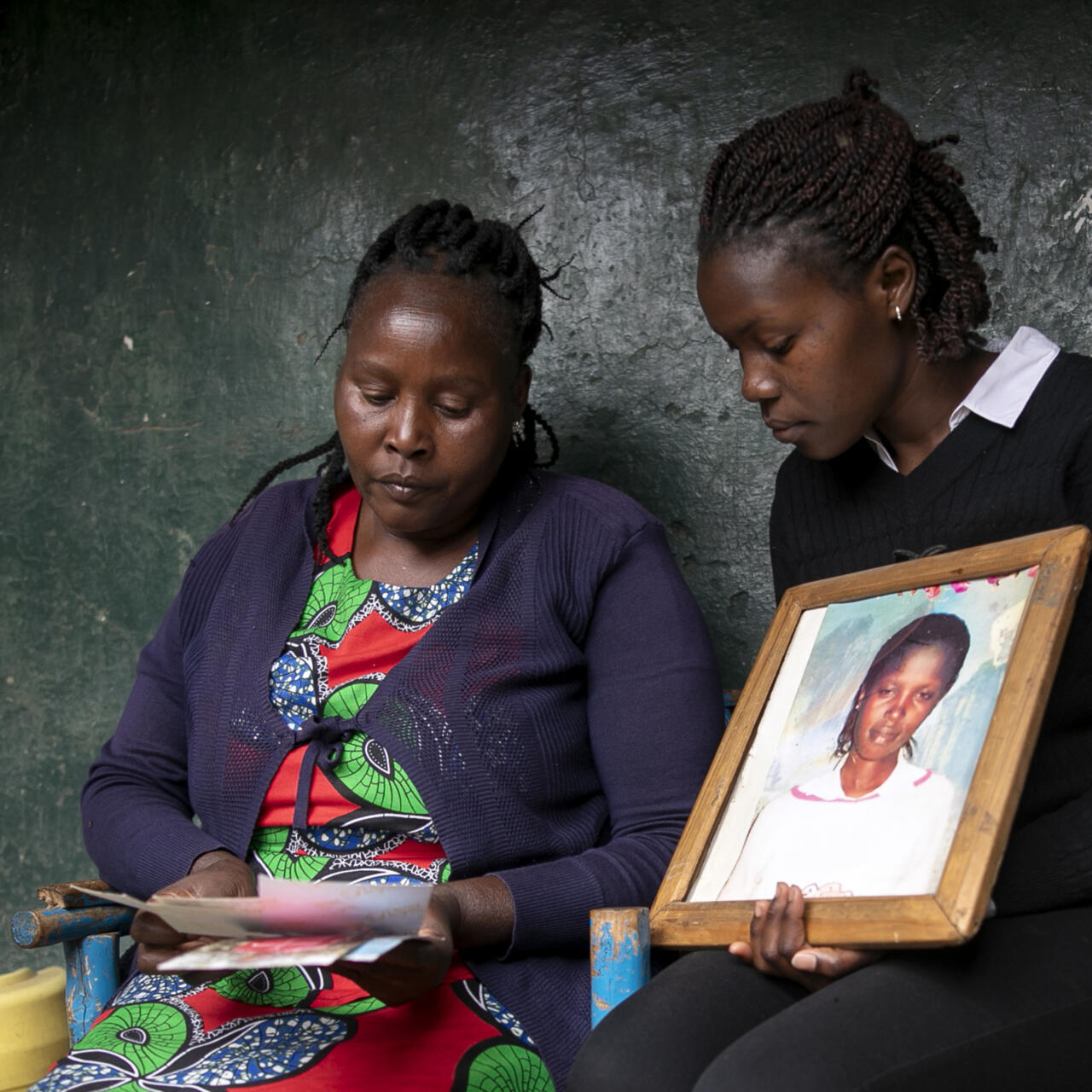Kenyan court issues arrest warrant for UK soldier over young mother’s murder

After thirteen years of grieving, a family in Kenya has successfully appealed to the country’s high court for an arrest warrant for a British national suspected of killing a 21-year-old woman, according to BBC News, September 17.
Her body was discovered in a hotel septic tank nearly 3 months after she had been murdered in March of 2012, reportedly, after the woman had spent a night partying with British soldiers.
Agnes Wanjiru is survived by a daughter, Stacey, who was just 5 months old at the time of her disappearance.
The 21-year-old worked as a hairdresser, occasionally selling sex for an additional income.
She was last seen leaving the Lions Court Hotel in Nanyuki, a popular spot for military service members stationed there-with a British soldier of the Duke of Lancaster Regiment.

Nanyuki is a garrison town located nearly 200km north of Kenya’s capital, Nairobi, and is home to the British Army Training Unit Kenya (Batuk).
Kenyan courts were satisfied the prosecution had provided sufficient evidence of the crime, allowing Justice Alexander Muteti to grant the suspect, a former British soldier, to appear before a Kenyan court.
The lawyer representing the Wanjiru family, Kamau Mibu, said he welcomed the news, stating it now meant proceedings could begin, including the suspect’s extradition from the UK to Kenya.
Mr Mbiu emphasised the need for greater transparency regarding the case due to the high public interest from the Kenyan public.
Ultimately, Justice Muteti decided that neither the accused nor witnesses to the event would be revealed to the public in order to protect the trial’s integrity.
The murder of Agnes Wanjiru is not a straightforward crime; in fact, the case could set a new precedent and have international implications.
On October 13, 2024, an investigation by The Sunday Times revealed that repeated attempts had been made to report the murder to the British military police after soldier X (the alleged murderer) confessed to strangling Agnes Wanjiru to Soldier Y. As newly reported by The Sunday Times, 20 Soldiers who were stationed in the rural town at the time have since come forward about the killing.
According to AOAV, for years the British military chose to cover up the crime; they say Wanjiru’s case represents not only the failure of individual soldiers but the entire army, noting that crimes such as this also exemplify the overwhelming scrutiny and backlash whistleblowers such as soldier Y receive for reporting crimes.
Due to the ongoing nature of the legal proceedings, the UK government has been limited in its comments on the case; however, a spokesperson for the government commented that “Our thoughts remain with the family of Agnes Wanjiru and we remain absolutely committed to helping them secure justice.”
The Guardian reported that UK Minister of Defence John Healy met with the Wanjiru family earlier this year to assure them of the UK’s full support of the case. He later described the meeting as “deeply humbling,” and that it reinvigorated his “determination to see a resolution to the still-unresolved case.”
Should the extradition proceed, as it is expected to currently, it will be the first time a current or formerly serving British solider will have been transferred to foreign custody to face trail for murdering a civilian, according to The Guardian, which could mark the Wanjiru case as one of the most significant legal milestones in UK history relating to a British solider, according to The Guardian.
The struggle for justice has been a long and arduous one for Agnes’ family, with the case causing public fury in Kenya.
Thirteen years later, Ms Wanjiru continues to mourn the tragic loss of a daughter alongside her family, who still live in Nanyuki.
The UK’s Ministry of Defence has said it will continue to cooperate with Kenyan authorities on the matter.
Although this is certainly a breakthrough moment for the family, who continue to seek closure, they are aware that they must continue to be patient.
Speaking to the BBC, Ms Wanjiru’s Niece, Esther Njoki, described the news as a “bittersweet moment” in their story, as she believes the extradition process could indeed still take time to be completed.
The nature of the witnesses and the accused themselves being located abroad may add logistical complications to the trial process; however, Kenyan prosecutors have been assured that witnesses will be made available for the duration of the trial.
The Guardian reports the Wanjiru family is also seeking help from a UK legal representative, Tesa Gregory, who has called for her government in the UK to proceed swiftly with the extradition process, saying they must “do everything in its power to ensure that the accused can be extradited and face trial in Kenya as soon as possible”.
The case is next scheduled to be heard in Kenya’s courts on October 21, 2025.
BBC News, The Guardian (UK), The Sunday Times (UK), Action on Armed Violence [AOAV], Maghrebi.org
Want to chase the pulse of North Africa?
Subscribe to receive our FREE weekly PDF magazine












